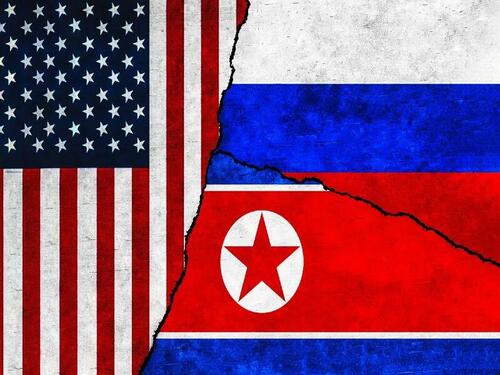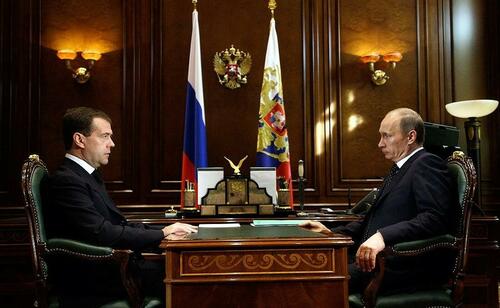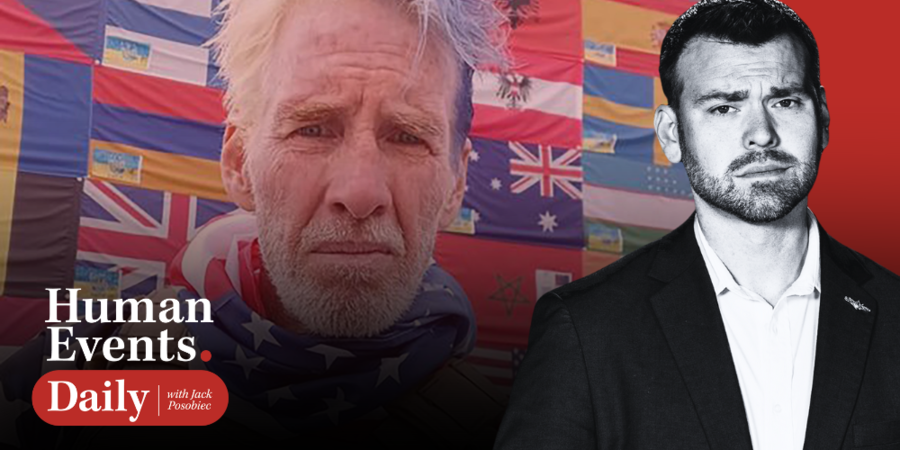
Authored by Nic Carter via X (emphasis ours),
My view of the election is that Trump and Harris were locked in a spiritual battle. Many, including myself, felt that the sparing of Trump’s life in the first assassination was an act of clear divine providence. For him to turn his head at that precise moment to avoid the assassin’s bullet, suffering only a grazed ear – it defies belief. I don’t believe in coincidences like that. Trump himself leaned into the religious overtones, understanding that many Christian supporters had come to see him as a messianic figure. Personally, I do believe – and there are many examples of this in the Bible – that God selects certain individuals to carry out His plans on Earth, and there is no doubt in my mind that Trump is one of those individuals. (Isaiah 6:8 says: “I heard the voice of the Lord, saying, Whom shall I send, and who will go for us? Then said I, Here am I; send me”)
Trump’s travails have been almost Job-like. Stripped of virtually everything, impeached, battered, humiliated, almost killed, slandered, deplatformed, sued, on the verge of being thrown in prison for the rest of his life, Trump found the strength to mount a remarkable campaign and win. It is the greatest political comeback in American history. Many see his resilience as superhuman and divinely inspired.
Now on the other side we have another religion, one I consider idolatrous, but a religion nonetheless. See when you strip God from life, you don’t leave people intact, but rather you leave them with a God-shaped hole. Today’s left has eliminated (or corrupted) the Church, and in its place they have adopted secular religions (some call this ‘gnostism’). Harris and her progressive supporters subscribe to three of these cults: climate doomerism, wokeism, and to a lesser extent AI safety. Broadly, these all fall under the umbrella of decel-ism.
It’s worth unpacking these slightly. Climate and AI doomerism are contemporary millenarian cults; that is, they are concerned with the apocalypse. Adherents to such cults believe that a reckoning is coming which will transform the earth, punish the sinful, save the worthy, or just wipe us out entirely. On climate, the idea is that we committed a grave original sin by debauching nature and emitting CO2; Gaia is punishing us by unleashing her wrath in the form of ever-intensifying storms (never mind that the cost to humans from climate-related disasters has been falling); and if we don’t sufficiently change our ways we will be extinguished in a final day of reckoning (think The Day After Tomorrow). AI safety is a newer cult, but very similar: we summoned a demon of sorts by creating AI, and we risk destroying humanity if we delve any deeper into machine intelligence. (There is a trippier variant of the AI doomer cult in which we achieve a rapture and merge with the Machine God in some kind of singularity.) Both cults stress the sin of industrial pursuit, and in both case the solutions are the same: slow down or even reverse progress.
Compare Trump and Harris on AI and Climate. Trump wants to re-energize America’s heartland, unleash our abundant energy resources for Bitcoin mining, AI, chip manufacturing, and so on. Trump recognizes that we cannot hamstring ourselves with a Merkel-style Energiewende. It’s suicide to sacrifice ourselves to the angry climate God via Thunbergesque atonement while China prints coal and nuclear plants. Meanwhile, Harris stands for an insipid green transition which simply hasn’t paid off anywhere it has been tried. The left’s infatuation for green transitions should be understood as superstition, not policy. (If they really believed in the existential risk from climate, they would be all in on nuclear, or even global cooling with aerosolized sulfates. They aren’t.) On AI, Harris stands for AI Safety, the self-aggrandizing Silicon Valley cult which both worships and fears the machine God. Trump instead sees AI as a vital strategic resource to be unleashed, making no underlying metaphysical claims whatsoever.
Leaving aside the decel cults, the most important spiritual lens through which Harris should be understood is wokeism. Wokeism is in some ways similar to those other two secular cults, in that it has rituals, priests, and has the elements of original sin – whiteness, privilege, etc. Wokeism even has a millenarian bent in that it presumes that the world is fundamentally unjust and subject to vast oppressive conspiracies (although it doesn’t clearly specify what the day of reckoning might look like). However the inherent flaw of Wokeism and the reason it doesn’t universalize well is that it offers no absolution. There’s no way for a straight white man (or anyone else near the top of the privilege hierarchy) to atone for their original sin. Compare with Christianity, which stresses (depending on the denomination) that all you have to do to be absolved of your sins is accept Jesus Christ into your heart. So wokeism can’t really sustain itself, because it’s dependent on a spiritual underclass of “oppressors” who are willing to continually submit to and elevate the least privileged (the trans disabled PoC, etc). But who would sign up for a religion that offers no atonement? Even the most ardent white wokes must feel a twinge of doubt at their membership in the cult, realizing that they are permanent Dalits in the woke caste system.
So I see the Trump Harris conflict through the lens of a spiritual war. Of course, the battle between right and left already has a spiritual component in that it’s not just two sets of rival policy positions but in fact a much more deep-seated set of mutually conflicting worldviews; individual versus system-level thinking, merit versus racial score-settling, small government versus collectivism, nuclear family versus the state as your family, and so on. In the case of Trump and Harris it was even more direct. Trump plays the role of an unintentional Messiah, almost accidentally thrust into this savior role. Though Trump’s faith may not be particularly sincere, his fans’ belief that he is a tortured savior chosen by God is. Meanwhile Harris is the purest representative we’ve seen of the progressive religion to date, being selected for the role not due to her track record in government but because of her anointed status within the woke cult. She is perfect: Black, Indian, a woman, and so on. (She merely lacked charisma, meaningful policy views, a distinct message of change, or a platform.) There can be no real dispute that she was more of an empty vessel for woke payloads than a genuine candidate. Her campaign was mainly focused on marshalling the high-propensity female vote on abortion, shaming minorities into falling in line, scolding men into voting “for their wives and daughters”, and so on. She abjectly refused to specify meaningful policy positions, keeping them deliberately vague, running instead on pure identitarianism.
To the right, her great sacrilege was her primary campaign issue – the murder of unborn children. Other issues she stands for – the coercive chemical castration of children, for instance, are considered not simply poor policy by the right, but downright satanic. It’s unsurprising that Trump’s strongest campaign message was “Kamala is for They/Them. Trump is for You.” For Trump’s Christian supporters, the distinction could not have been starker. Many felt that this was the last election if she won. The left misunderstood this when folks like Elon said it. The idea wasn’t that there would never be an election ever again, but rather that the left would vastly accelerate their import of the third world and spontaneously grant them citizenship. This isn’t far-fetched. The left was quite explicit about their desire to do this, and they partially executed on it under Biden. Some on the left, too, felt that if Trump regained power, he would fashion the government into a fascist authoritarian regime and permanently leave democracy behind. So this election had a decidedly existential bent to it. Many on both sides felt that this would be last freely contested vote.
As a Christian and a conservative, I am encouraged that America resoundingly rejected these woke cults and their emissary in Harris. This was a realigning election which cannot be written off as a fluke like 2016 was. Hispanics shifted abruptly right, undermining the Left’s core coalition. Harris actually underperformed Biden with black voters, showing the weakness of her identitarian campaign. Black men in particular defected from the left quite markedly. Trump gained with young voters, a generally secular group that is still infatuated with wokeism. By contrast, Trump did astoundingly well with Catholics, winning them by 18 points, the largest gap in decades. Trump also gained with Protestants relative to 2020. Eighty percent of evangelicals broke for Trump, again a better margin than 2020. Harris’ campaign built around Roe simply wasn’t compelling enough. And some of her high-propensity supporters, like suburban white moms, were turned off by the left’s ritual sacrifice of girls at the altar of wokeism (by allowing males in women’s sports, for instance). Voters were more concerned with immigration and the economy.
The democrats should engage in soul searching and realize that by embracing cults like wokeism, and GDP-destroying fantasies like climate doomerism and AI doomerism, they are swimming against the current. Their Obama coalition has been shattered in the biggest realigning election since Reagan. Having lost the working class, Hispanic vote, and unable to import new voters as they had planned, if they continue down the path of racial shame and elevating DEI candidates, they will lose over and over. As for the right, they have resurrected their messiah. Expectations couldn’t be higher. But one thing is clear. Religion, real religion, is still a force to be reckoned with in American politics. The left has lost the Mandate of Heaven. It belongs to Trump now.
Loading…
Originally Posted at; https://www.zerohedge.com//






